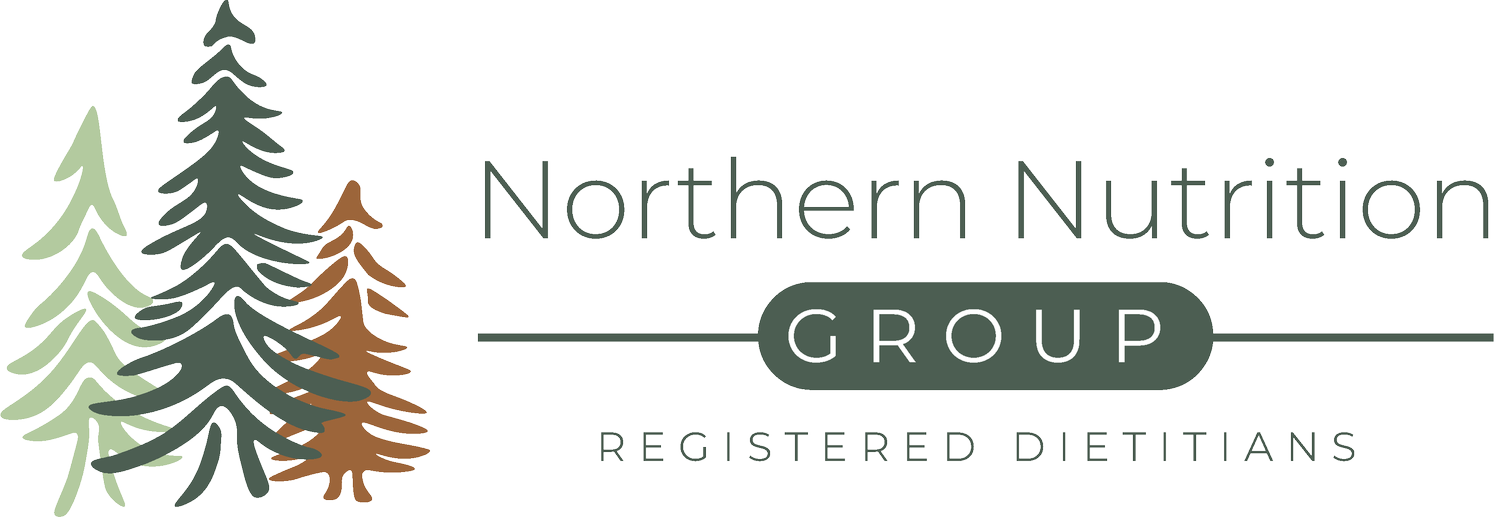Fueling Summer Adventures in Montana: Hikes, Bikes, and Backcountry
Montana summers offer many varieties of movements. Whether you're summiting Hyalite Peak, biking the Bangtail Divide, paddleboarding in Hyalite Reservoir or heading into the Absaroka-Beartooth for a multi-day backpacking trip, proper nutrition can make or break your adventure.
As registered dietitians living and working in Montana, we see the same pattern every summer. Clients putting hours into training, gear prep, and route planning but not giving much thought to how they’ll fuel their bodies along the way.
Spoiler alert: trail mix alone isn’t enough!
Here’s what you need to know about eating for energy, performance, and recovery when you're getting outside in Big Sky Country.
Why Nutrition Matters for Outdoor Recreation
Outdoor adventures often demand more energy than you expect. Elevation, heat, and long days can increase energy, electrolyte, and hydration needs, even for activities like a 3-hour hike or afternoon bike ride.
Poor fueling can lead to:
Early fatigue
Poor recovery
Headaches or lightheadedness
Cramps or GI issues
“Bonking” (hitting the wall)
With a bit of planning, you can feel strong all day and enjoy the views without the crash.
Before You Head Out: Pre-Adventure Fuel
Your pre-outing meal should be a mix of carbs, protein, fat, and hydration about 1–3 hours before your activity. Carbs provide quick energy, protein supports muscle, fat supports satiety, and hydration keeps you cool and alert.
Good options:
Oatmeal with berries and nut butter
Toast with eggs and avocado
Greek yogurt with granola and a banana
Breakfast burrito with beans, veggies, and salsa
On the go? A smoothie with fruit, protein powder, and oats works well too.
On the Trail: Snacks That Actually Work
For activities longer than 60–90 minutes, especially in the heat or at elevation, carbohydrates are your best friend! Your body burns through glycogen (stored energy) quickly, and steady intake keeps your muscles and brain going.
Easy, Packable Snacks to Bring Along:
Energy bars
Trail mix with dried fruit, seeds, and chocolate
Peanut butter + honey tortilla roll-ups
Homemade energy balls (oats, nut butter, honey)
Fruit leather or applesauce pouches
Jerky + crackers for a protein/carb combo
Set a timer if you forget to snack. It’s easier to prevent fatigue than to reverse it.
Don’t Forget Hydration & Electrolytes
Dehydration is common in Montana’s dry climate, especially at altitude. If you feel dry and thirsty, you're already behind.
General hydration guidelines:
1/2 liter of water per hour of moderate activity
Add electrolyte tablets (like Nuun or LMNT) for activities over 2 hours or in hot weather
Watch for signs of dehydration: dry mouth, dark urine, dizziness
For longer efforts (especially biking or backpacking), a hydration bladder makes sipping easier than water bottles.
After the Adventure: Refuel & Recover
Recovery matters for your immune system, sleep, muscle repair, and for your next workout.
Aim to eat within 30–60 minutes after finishing your activity. A combo of protein + carbohydrates helps replenish glycogen stores and repair muscle tissue.
Recovery meal ideas:
Turkey sandwich + fruit
Rice bowl with chicken, avocado, and veggies
Smoothie with protein, banana, oats, and berries
Eggs + toast + sautéed greens
And yes, drink more water. You probably lost more fluids than you realized.
Nutrition Tips for Backpackers & Multi-Day Trips
Backpacking in Montana presents unique challenges: high energy needs, limited space, and no refrigeration. Here’s how to stay fueled and light:
Lightweight, High-Energy Foods:
Dehydrated meals (add olive oil or nut butter to boost calories)
Powdered peanut butter or instant hummus
Energy-dense bars (Clif, ProBar, Bobo’s)
Instant oats with dried fruit and powdered milk
Ramen with added protein (jerky, seeds, or TVP)
Montana’s outdoors are rugged, wild, and awe-inspiring and your body is the vehicle that gets you there. Fuel it with the same care you give your gear.
Whether you’re training for a trail race, preparing for a thru-hike, or just want to feel better on your weekend adventures, we’re here to help.
Need help building your fueling plan? Reach out!
Written by Kaitlyn Schlangen, MS, RD
Kaitlyn specializes in: Eating disorders, disordered eating patterns, gastrointestinal (GI) disorders and diseases. She is dedicated to supporting individuals across all spectrums of these challenges.
